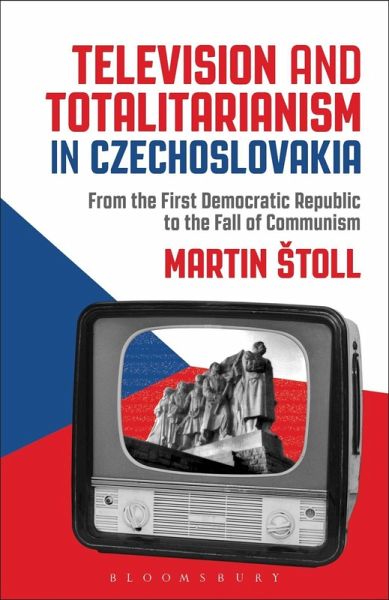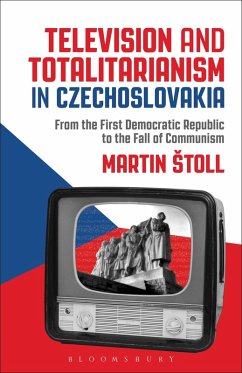
Television and Totalitarianism in Czechoslovakia (eBook, ePUB)
From the First Democratic Republic to the Fall of Communism
Sofort per Download lieferbar
27,95 €
inkl. MwSt.

PAYBACK Punkte
14 °P sammeln!
The story of Czechoslovak television is in many respects typical of the cultural and political developments in Central Europe, behind the Iron Curtain. Martin stoll, with unprecedented access to the Military Historical Archives in Prague, provides contextual insights into the issues of introducing television in the whole Socialist Bloc (save China, Mongolia and Cuba), from the introduction of television broadcasting in Czechoslovakia in 1921 through to the 1968 occupation and the Velvet revolution in 1989 - encapsulating an important point in media history within two totalitarian states. Telev...
The story of Czechoslovak television is in many respects typical of the cultural and political developments in Central Europe, behind the Iron Curtain. Martin stoll, with unprecedented access to the Military Historical Archives in Prague, provides contextual insights into the issues of introducing television in the whole Socialist Bloc (save China, Mongolia and Cuba), from the introduction of television broadcasting in Czechoslovakia in 1921 through to the 1968 occupation and the Velvet revolution in 1989 - encapsulating an important point in media history within two totalitarian states. Television and Totalitarianism in Czechoslovakia examines the variability of political interests as reflected on television in interwar Czechoslovakia, including Nazi research on television technology in the Czech borderlands (Sudetenland), the quarrel over the outcomes of this research as war booty with the Red Army, the beginning of the Czechoslovak technological journey, and, finally, the institutionalized foundation of Czechoslovak television, including the first years of its broadcasting as a manifestation of Communist propaganda. Revised and expanded from the Czech to include broader contexts for an English-speaking audience, stoll expertly elucidates the historical, cultural, social, political, and technological frameworks to provide the first comprehensive study of the subject.













